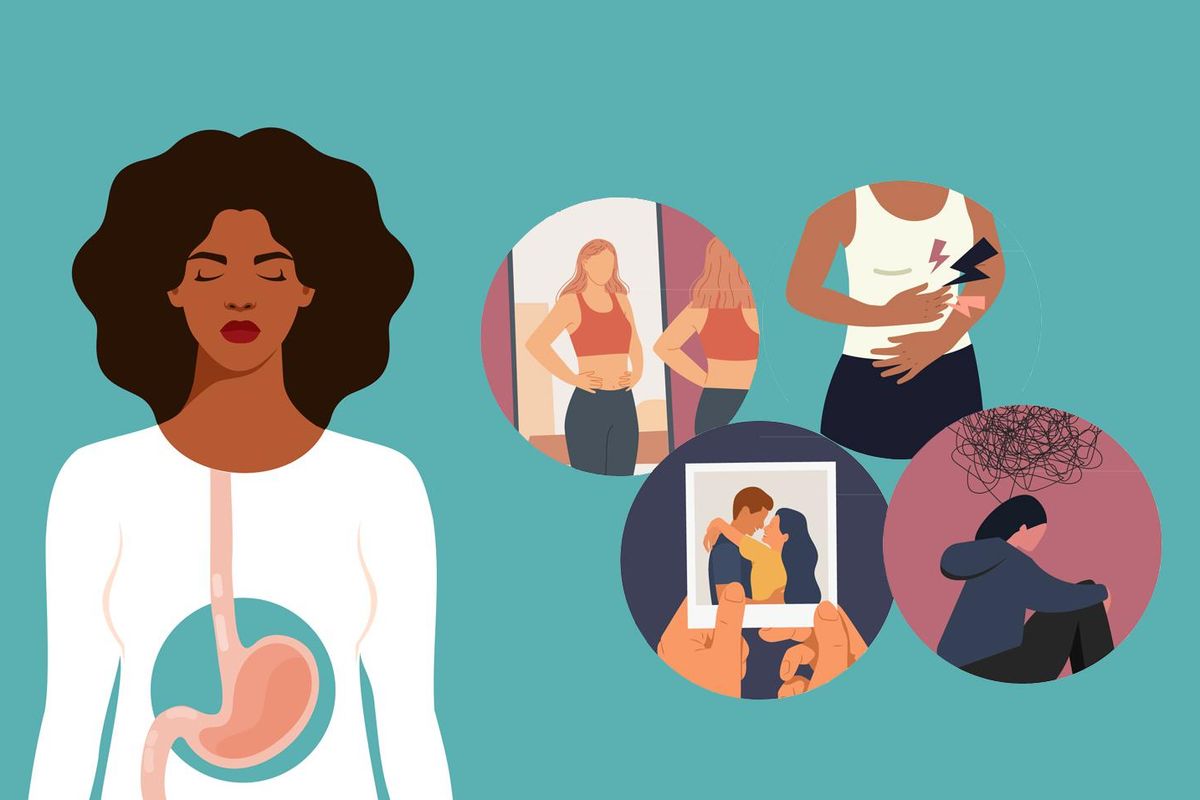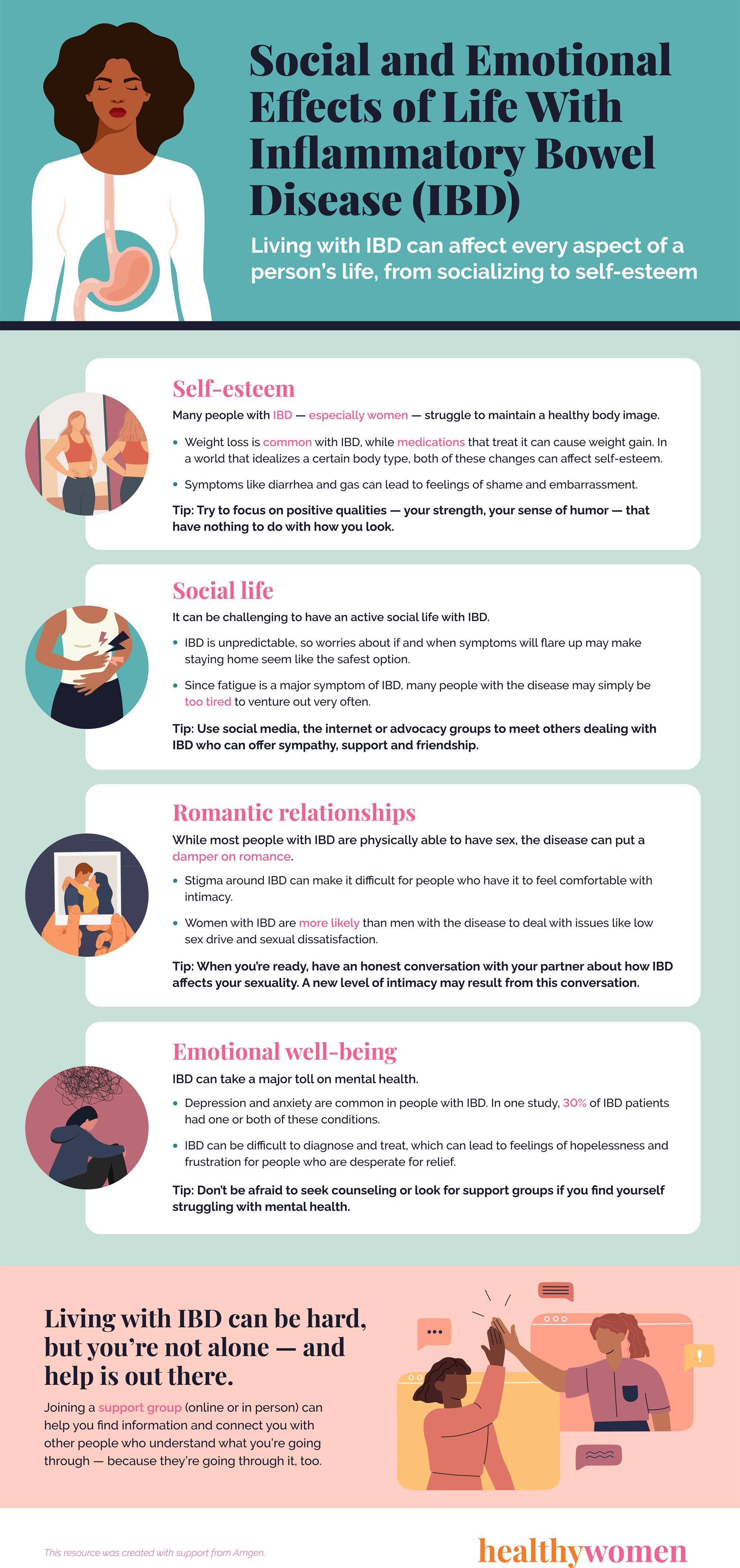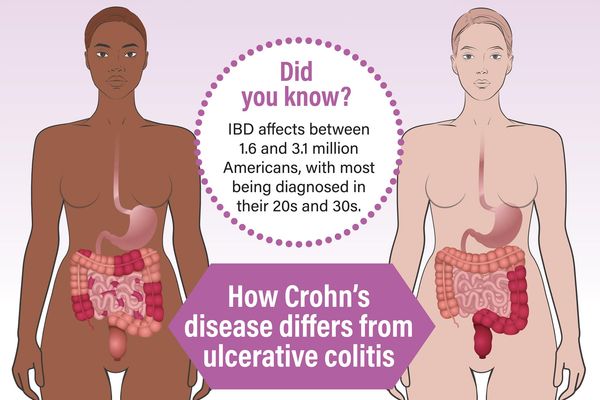Designed by Megan Schofield
Inflammatory bowel disease (IBD) can affect every aspect of your life, from your friendships to your feelings.
Living with IBD may affect your:
Self-esteem
Many people with IBD — especially women — struggle to maintain a healthy body image.
- Weight loss is common with IBD, while medications that treat it can cause weight gain. In a world that idealizes a certain body type, both of these changes can affect self-esteem.
- Symptoms like diarrhea and gas can lead to feelings of shame and embarrassment.
Tip: Try to focus on positive qualities — your strength, your sense of humor — that have nothing to do with how you look.
Social life
It can be challenging to have an active social life with IBD.
- IBD is unpredictable, so worries about if and when symptoms will flare up may make staying home seem like the safest option.
- Since fatigue is a major symptom of IBD, many people with the disease may simply be too tired to venture out very often.
Tip: Use social media, the internet or advocacy groups to meet others dealing with IBD who can offer sympathy, support and friendship.
Romantic relationships
While most people with IBD are physically able to have sex, the disease can put a damper on romance.
- Stigma around IBD can make it difficult for people who have it to feel comfortable with intimacy.
- Women with IBD are more likely than men with the disease to deal with issues like low sex drive and sexual dissatisfaction.
Tip: When you’re ready, have an honest conversation with your partner about how IBD affects your sexuality. A new level of intimacy may result from this conversation.
Emotional well-being
IBD can take a major toll on mental health.
- Depression and anxiety are common in people with IBD. In one study, 30% of IBD patients had one or both of these conditions.
- IBD can be difficult to diagnose and treat, which can lead to feelings of hopelessness and frustration for people who are desperate for relief.
Tip: Don’t be afraid to seek counseling or look for support groups if you find yourself struggling with mental health.
Living with IBD can be hard, but you’re not alone — and help is out there.
Joining a support group (online or in person) can help you find information and connect you with other people who understand what you’re going through — because they’re going through it, too.
This resource was created with support from Amgen.
- Eating Out When You Have Inflammatory Bowel Disease ›
- Social and Emotional Effects of Life With Inflammatory Bowel ... ›
- Inflammatory Bowel Disease and Your Sex Life - HealthyWomen ›
- What You Need to Know About Inflammatory Bowel Disease ... ›
- How Inflammatory Bowel Disease Affects Relationships, Sexual ... ›
- Fast Facts: What You Need to Know About Inflammatory Bowel ... ›
- Living with Inflammatory Bowel Disease - HealthyWomen ›
- How to Support Someone With Inflammatory Bowel Disease (IBD) - HealthyWomen ›







